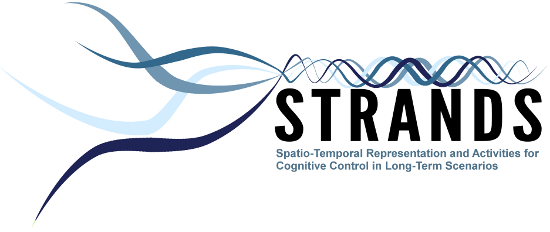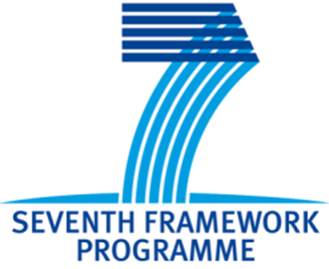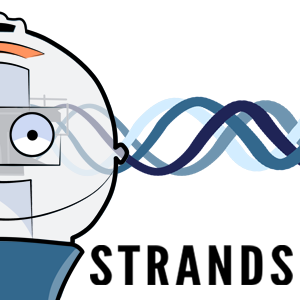Related Projects
- TRADR
Using a proven-in-practice user-centric design methodology, TRADR develops novel S&T for human-robot teams to assist in disaster response efforts, over multiple missions: The novel S&T makes experience persistent. Various kinds of robots collaborate with human team members to explore the environment, and gather physical samples. Throughout this collaborative effort, TRADR enables the team to gradually develop its understanding of the disaster area over, multiple possibly asynchronous missions (persistent environment models), to improve team members' understanding of how to work in the area (persistent multi-robot action models), and to improve team-work (persistent human-robot teaming).
- CoBot
CoBot robots follow a novel symbiotic autonomy, in which the robots are aware of their perceptual, physical, and reasoning limitations and proactively ask for help from humans, for example for object manipulation actions. (The CoBot robots, at this time, do not have arms.)
- SQUIRREL
Clutter in an open world is a challenge for many aspects of robotic systems, especially for autonomous robots deployed in unstructured domestic settings, affecting navigation, manipulation, vision, human robot interaction and planning.
NAO cleaning up
Squirrel addresses these issues by actively controlling clutter and incrementally learning to extend the robot's capabilities while doing so.
- SPENCER
Motivated by the increasing number of robots that share a space with people, SPENCER will break new ground for cognitive systems in human environments. While there is an increasing trend towards socially aware robots, previous research is still limited in its capacity to perceive, learn and model human social behavior and to use this knowledge to plan appropriate actions in real-time from mobile platforms.
- STRoLL
The STRoLL project investigates the use of the Frequency Map Enhancement (FreMEn) concept, which was developed in STRANDS, for outdoor visual navigation of mobile robots.
Through the improvement and extension of the FreMEn concept, the STRoLL project will develop universal spatio-temporal modelling methods capable of predicting future environment characteristics based on robots' past experience.
The predictive power of these models will improve the efficiency and reliability of vision-based autonomous navigation of mobile robots in outdoor, naturally changing environments.
This Website is maintained by the Automation and Control Institute (ACIN), TU Vienna
Impressum


